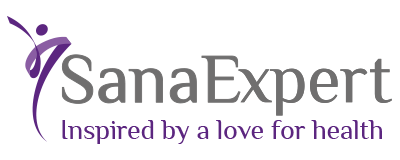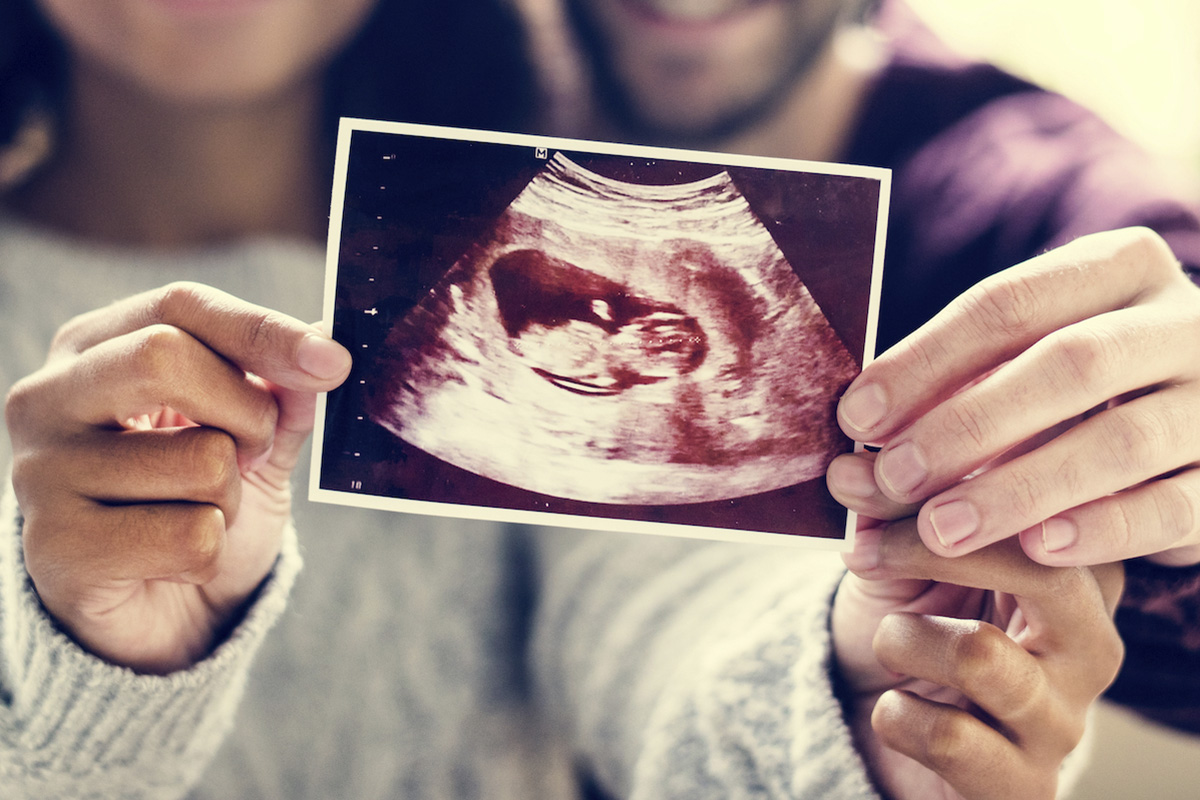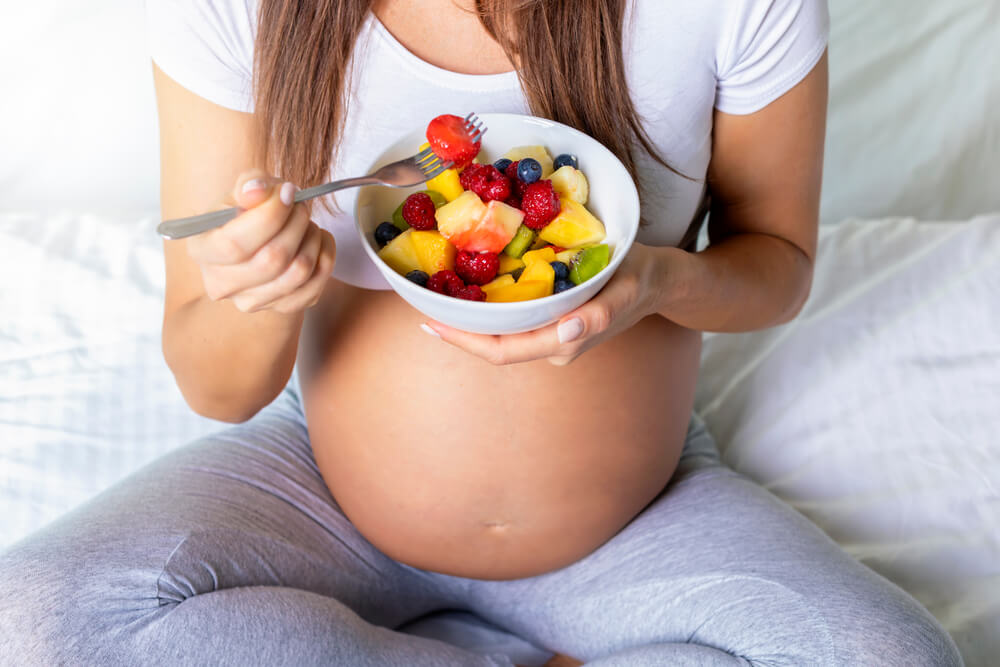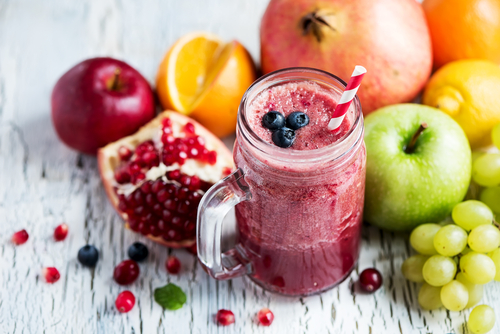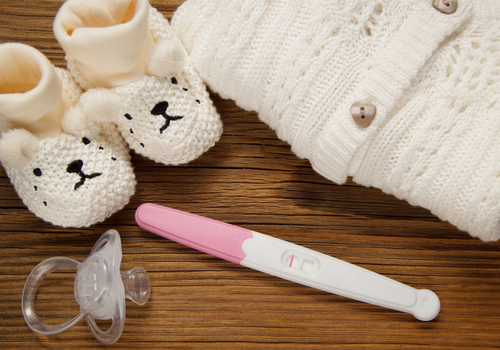Diet if you want to have children
The age, health and lifestyle of both partners have a major impact on fertility. Above all, a balanced diet rich in vitamins for women and men can make a significant contribution to fulfilling the desire to have children. If the female body is not optimally supplied with nutrients, one of the first things it does is stop its reproductive function. He is practically in survival mode and has no additional resources for a strenuous pregnancy. The same applies to men. Their diet also has a direct influence on their fertility and the quality of the sperm.
You should pay attention to this if you want to have children
We have put together 9 tips for you that you can consider in everyday life if you want to have children:
- Lots of fruit and vegetables: It is best to have three servings of vegetables and two servings of fruit a day, especially for a sufficient supply of vitamins C and E as well as minerals. A little tip: you can not only eat the vegetables raw, steamed, fried or boiled, but also in the form of ideally homemade smoothies .
- Sufficient protein: In addition to animal proteins from low-fat meat (300-600 g per week) and eggs, also use vegetable sources of protein, such as legumes, tofu and nuts as well as seeds and kernels. These also provide minerals and vitamins such as iron, selenium and B vitamins.
- More fish: Include fish in your diet twice a week. Reach in moderation (once a week) with fatty varieties like salmon, mackerel, and herring. Avoid mercury-contaminated fish such as tuna, swordfish, monkfish, halibut, shark, and eel.
- Complex instead of simple carbohydrates: for example, from whole grain bread, potatoes, brown rice and pumpkin.
- Homemade: Cut down on fast food and processed foods. These are often high in sugar, hydrogenated fats, and additives. They are also poor in important micronutrients. Rather, rely on home-cooked food. Here you know what’s in it and you also feel much better after eating it compared to fast food and sweets.
- Drink enough: This is how you support your body in all metabolic processes. At least 1.5 to 2 liters of water or unsweetened teas are ideal.
- Reduce alcohol consumption: Drink less alcohol or, best of all, do without it when you want to have children (in pregnancy it is necessary to strictly abstain from alcohol anyway). Alcohol has been shown to have a negative impact on female fertility. It upsets the hormonal balance and can slow down the maturation of the egg cell. Some women even experience disturbances in their monthly cycle due to high alcohol consumption.
- Organic foods: They are generally a better choice as they contain no chemical pesticides and no additional hormones or antibiotics. The exposure to heavy metals is also significantly lower due to the fact that no artificial fertilizers are used when growing organic products. Because they can reduce fertility, it is advisable to avoid heavy metals (not only) when trying to have children. It is true that absorption through the groundwater and also through organic products cannot be completely avoided, but the pollution of organic food is significantly lower
- Exercise: Sufficient exercise is important before and during pregnancy. The right amount is crucial here. Extreme cardio training, for example, can have a negative effect and even cause your period to stop altogether. A balanced sports program, on the other hand, is ideal: It improves your stamina, strengthens the muscles and increases mobility. Exercise also keeps you fit and ensures balance – the most important prerequisites when you want to have children.
Which nutrients increase fertility and what are they contained in?
Even before pregnancy, many women, without knowing it, are clearly undersupplied with folic acid, iron, zinc, selenium and other nutrients, and especially during pregnancy the body has an increased need for minerals, trace elements and vitamins. Folic acid, iodine and iron are particularly important for mother and child. Since these are difficult to absorb in sufficient quantities through food, you should cover them with a dietary supplement – of course in consultation with your gynecologist. At this point, we recommend SanaExpert Natalis Pre, which, thanks to its combination of nutrients, is optimally adapted to the sensitive phases of having children and early pregnancy.
- Folic acid
Folic acid is significantly involved in important cell division processes and in hormone production. It also plays an important role in egg maturation and in the structure of the uterine lining. Adequate intake of folic acid is necessary even when you are trying to have children, as it takes some time to build up an optimal folic acid level. Women who have been using hormonal contraception for a long time must also expect to have a folic acid deficiency.
Folic acid is in:
- Kale and other types of cabbage
- Lamb’s lettuce
- spinach
- Chickpeas
- Wheat bran
- oatmeal
- Peanuts
- Cherries and strawberries
In addition, experts recommend taking a folic acid supplement with at least 400 to 600 micrograms of folate per day.
2. Vitamin E
Vitamin E protects the cells. This also benefits the sensitive hormones produced in the pituitary gland and the sexual organs. Vitamin E deficiency can lead to fertility problems, among other things.
For adult women, 12 milligrams of vitamin E per day are recommended, for men between 14 and 15 milligrams.
Vitamin E is in:
- Wheat-germ oil
- Sunflower oil
- Rapeseed oil
- Olive oil
- Pine nuts
- Almonds
3. Vitamin D
A sufficient supply of vitamin D has a positive effect on the hormone balance in women. Vitamin D also plays an important role in calcium metabolism, as it ensures that the important mineral is incorporated into the bones. In men, vitamin D improves sperm quality and their lifespan. Sufficient vitamin D can only be produced in the body with the help of solar radiation. Most people in Germany are undersupplied, especially during and after the dark winter months. Only a few foods contain vitamin D – but if you consume it regularly you can still make a small contribution to your supply.
The German Society for Nutrition (DGE) recommends taking in 20 micrograms of vitamin D per day if the body is insufficiently formed due to insufficient sunlight. Foods that contain vitamin D include:
- Herring
- Salmon
- Egg Yolk
- Porcini mushrooms
- Mushrooms
- Avocado
- Emmental
4. Zinc
Zinc is equally important for women and men because it is involved in the production of sex hormones. In addition, zinc protects against excessive exposure to heavy metals. This protection in turn has a positive effect on fertility.
The DGE recommends a daily intake of seven milligrams for women and ten milligrams for men.
Zinc is in:
- Beef
- Oysters
- Seeds such as pumpkin seeds and sunflower seeds
- Cheese
- Nuts, especially Brazil nuts and walnuts
5. Selenium
Selenium is an essential trace element that protects the body from free radicals and boosts metabolic processes. The thyroid gland and thus the formation of hormones are also dependent on selenium. In studies, the additional administration of selenium has been shown to improve sperm quantity and quality. A woman’s organism needs about 60 micrograms every day to function ideally. Our tip: Anyone who eats three Brazil nuts a day simply ensures their selenium supply – but that’s all it should be.
6. Omega-3 fatty acids
Omega-3 fatty acids are essential, which means it is essential that we absorb them through our food. The valuable fatty acids are anti-inflammatory and important for an intact immune system. This in turn promotes implantation and the maintenance of pregnancy. In a recent study at fertility centres, a connection between the higher probability of pregnancy and the intake of omega-3 capsules containing the two omega-3 fatty acids DHA and EPA (480 milligrams daily) was recently demonstrated. Sperm quality also benefits from an adequate supply of unsaturated fatty acids. Omega-3 fatty acids are found in high-fat fish such as mackerel, salmon and herring. If you are on a vegetarian diet, you can fall back on chia seeds, linseed, walnuts and rapeseed oil. Linseed and chia seed, for example, can be easily incorporated into a muesli.
Body weight
Body weight and fertility are closely related. Experts explain again and again that with an ideal weight the chances of conception increase. Especially in the female cycle, the effects of underweight and overweight are particularly great. Underweight women often stop ovulating in their cycles because the body switches to “emergency mode”, after all, reproduction costs a lot of energy. Conversely, an excessive amount of body fat can have an effect on the hormone balance: contrary to popular belief, body fat is not simply a store of excess calories for bad times but is involved in numerous hormone processes. Abdominal fat in particular has a decisive influence on the hormonal balance, as it forms oestrogens. As a result, overweight men, who consequently produce more oestrogen, often have poorer sperm quality than men of normal weight. In women, too low or too high a level of oestrogen also has a negative effect on fertility.
The first step is to try to gain or lose a few kilos. Especially when losing weight, you should make sure that you lose weight slowly but healthily. Radical and lightning diets have the opposite effect because they cause stress for the body, it works on a low flame and fertility suffers.
What you should avoid
Excessive alcohol consumption, cigarettes, lack of sleep, unhealthy nutrition, stress and lack of exercise may be part of our society – but they are certainly not conducive to fulfilling the desire for children. The substances contained in so-called luxury foods can also harm the unborn child.
Of course, you do not have to live like a monk during your fertility phase. However, if the longed-for pregnancy does not materialize, unhealthy habits should be checked and changed if necessary. Ideally, planning a pregnancy starts with optimizing your living conditions and nutrition. Fertility can thus be positively influenced.
Summary
If you and your partner want to have a baby, you should pay attention to a healthy lifestyle. Sufficient exercise, relaxation, a normal body weight and a balanced diet are part of it. It is also important to avoid negative influences such as alcohol, smoking, too much coffee and stress.
Certain vitamins and minerals can promote fertility. Those who are sufficiently supplied with them support their desire to have children. These include above all folic acid, vitamin E, vitamin D, zinc, selenium and omega-3 fatty acids. So make sure to include foods in your diet that are rich in these nutrients.
In addition to a healthy diet, a dietary supplement can be very useful if you want to have children, in order to supply the body with all the important micronutrients. (An “oversupply” of the body is usually not possible).
This is why we have developed Natalis Pre. With SanaExpert Natalis Pre Folic Acid Capsules you can provide yourself and your baby with everything that is important in the first months of family planning when you wish to have children and up to the 13th week of pregnancy. The great special feature that sets Natalis Pre apart from comparable products: The combination preparation contains the extremely bioavailable form of folate in the form of the multiple patented ingredient Quatrefolic. In addition, the combination of 800 μg folate (400 μg folic acid and 416 μg Quatrefolic), as found in Natalis Pre, is unique in this composition. Natalis Pre also provides vitamins D, C, E, B1, B2, B12, B6 as well as iron, calcium, magnesium, copper, manganese, chromium, zinc, selenium and iodine for a comprehensive supply.
With SanaExpert Natalis Pre, you not only receive a nutrient combination that is precisely tailored to the needs of children and early pregnancy, but also the good feeling of doing the best possible for you and your child.
And now the best: Your partner can also help the joint happiness with our VitaFertil and ensure an optimal supply of nutrients, so that the little miracle gets only the best conditions from both sides.
